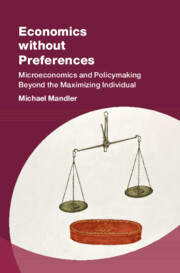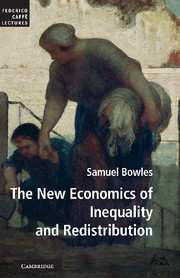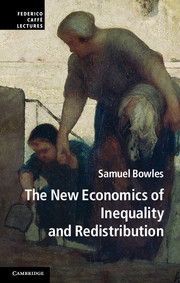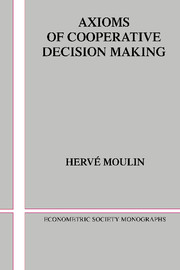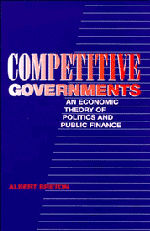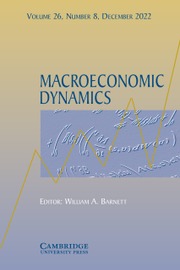Economics without Preferences
Economics without Preferences lays out a new microeconomics – a theory of choice behavior, markets, and welfare – for agents who lack the preferences and marginal judgments that economics normally relies on. Agents without preferences defy the rules of the traditional model of rational choice but they can still systematically pursue their interests. The theory that results resolves several puzzles in economics. Status quo bias and other anomalies of behavioral economics shield agents from harm; they are expressions rather than violations of rationality. Parts of economic orthodoxy go out the window. Agents will fail to make the fine-grained trade-offs ingrained in conventional economics, leading market prices to be volatile and cost-benefit analysis to break down. This book provides policy alternatives to fill this void. Governments can spur innovation, the main benefit markets can deliver, while sheltering agents from the upheavals that accompany economic change.
- Reconstructs the theory of rationality and markets in both formal models and in language understandable to any economist
- Integrates Innovative 'multiple priors' models of decision theory into the analysis of markets
- Shifts policymaking from preference-based efficiency improvements to productivity enhancement
- Links Philosophical accounts of rationality with a rigorous analysis of the economic interests of agents
Reviews & endorsements
‘Michael Mandler is one of the most brilliant and unorthodox minds in social science and Economics without Preferences is his masterwork. Mandler's fascinating reformulation of economic theory via the relaxation of conventional notions of rationality is pathbreaking. This book demonstrates that the empirical limitations of neoclassical theory can be constructively and compellingly addressed to produce a richer and more powerful formal framework for understanding individual and collective behavior. Every economist should study this wonderful book.’ Steven Durlauf, Director, Stone Center for Research on Wealth Inequality and Mobility, Harris School of Public Policy, University of Chicago
‘Mandler’s stimulating, thought-provoking, and enjoyable book uses the transition from good old-fashioned neoclassicism to modern economics as a springboard to his own theory of incomplete preferences. The result is an intriguing series of implications and questions for received theory. Mandler’s theoretical developments culminate in proposals to evaluate government policies by their effect on the options available to individuals rather than by classical definitions of efficiency. If that framework had been in place when steel belts became rust belts, the economic and political fallout might have taken a very different and more benign course.’ Duncan Foley, Emeritus Leo Model Professor of Economics, New School for Social Research
Product details
January 2025Adobe eBook Reader
9781009340694
0 pages
This ISBN is for an eBook version which is distributed on our behalf by a third party.
Table of Contents
- Preface
- 1. Marginal utility matters
- Part I. Trade-Offs and Rationality:
- 2. Utility as an ordering principle
- 3. Incomplete preferences
- 4. The rationality of choice
- 5. Safety bias
- 6. The myth of indifference
- part II. Economic Analysis and Policy Without Preferences:
- 7. The volatility of prices
- 8. Trouble with welfare economics
- 9. Pareto without preferences
- 10. Utilitarianism without utility
- 11. Production and rationality
- 12. Custom and flexibility
- Appendix.

